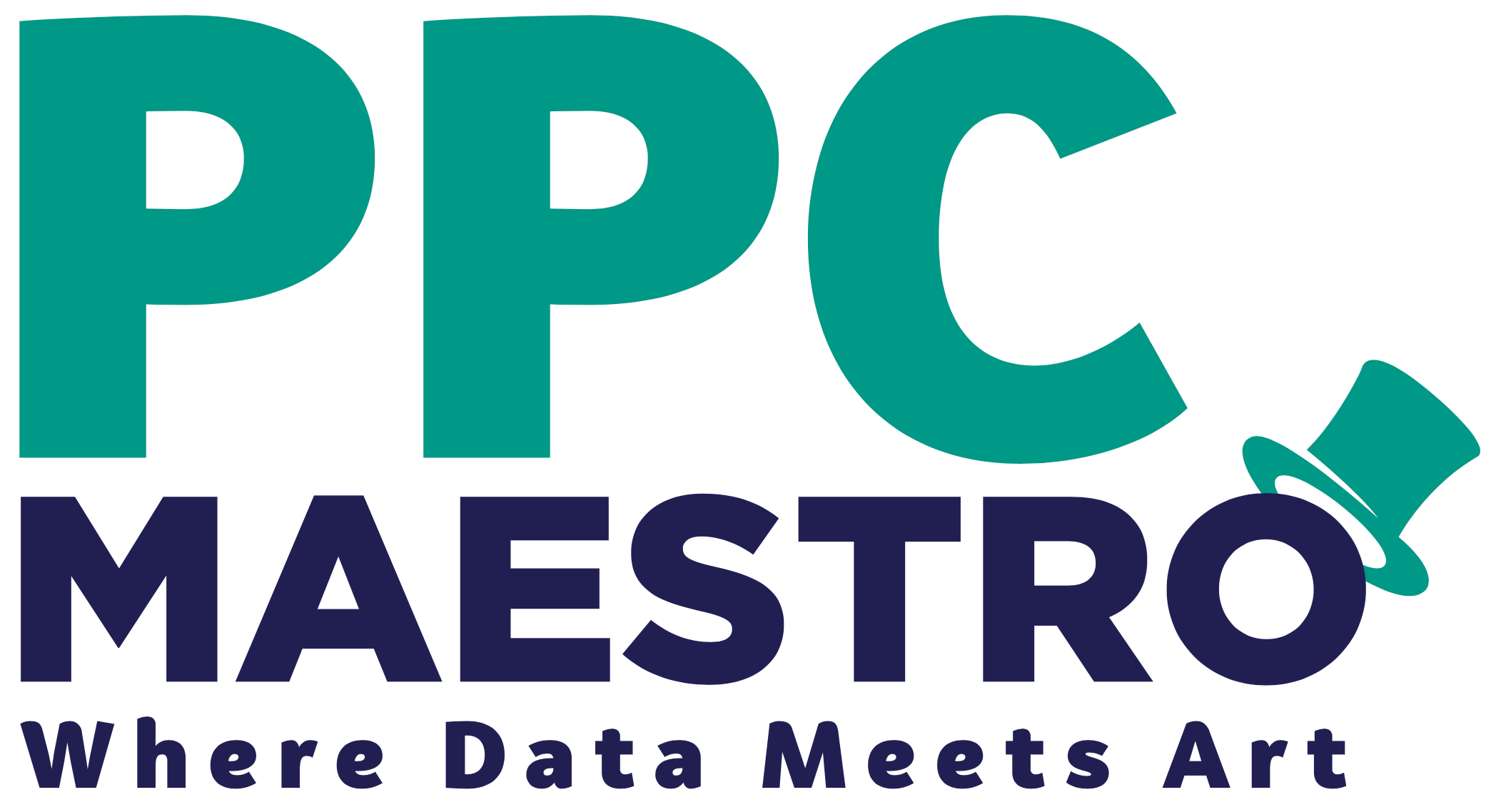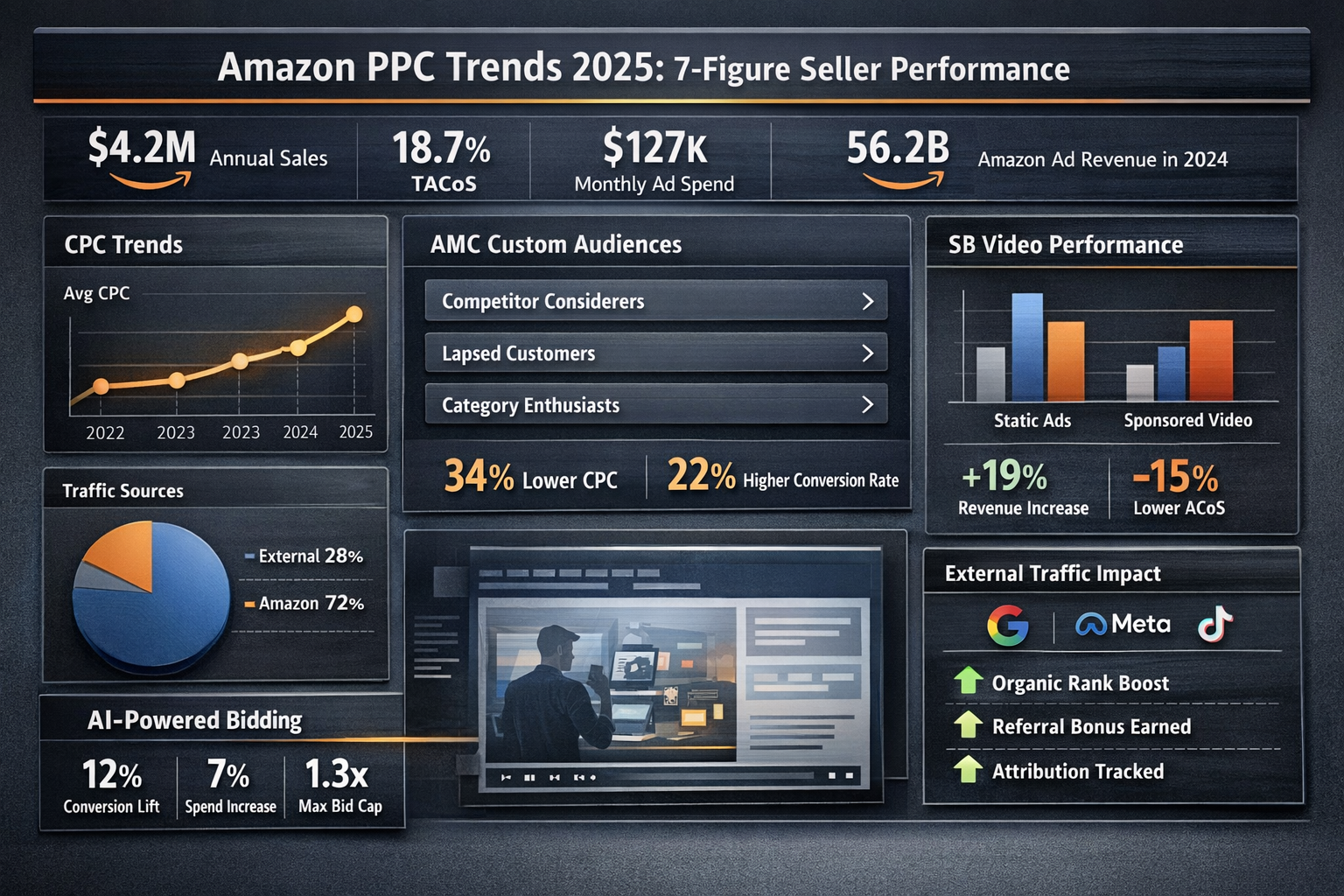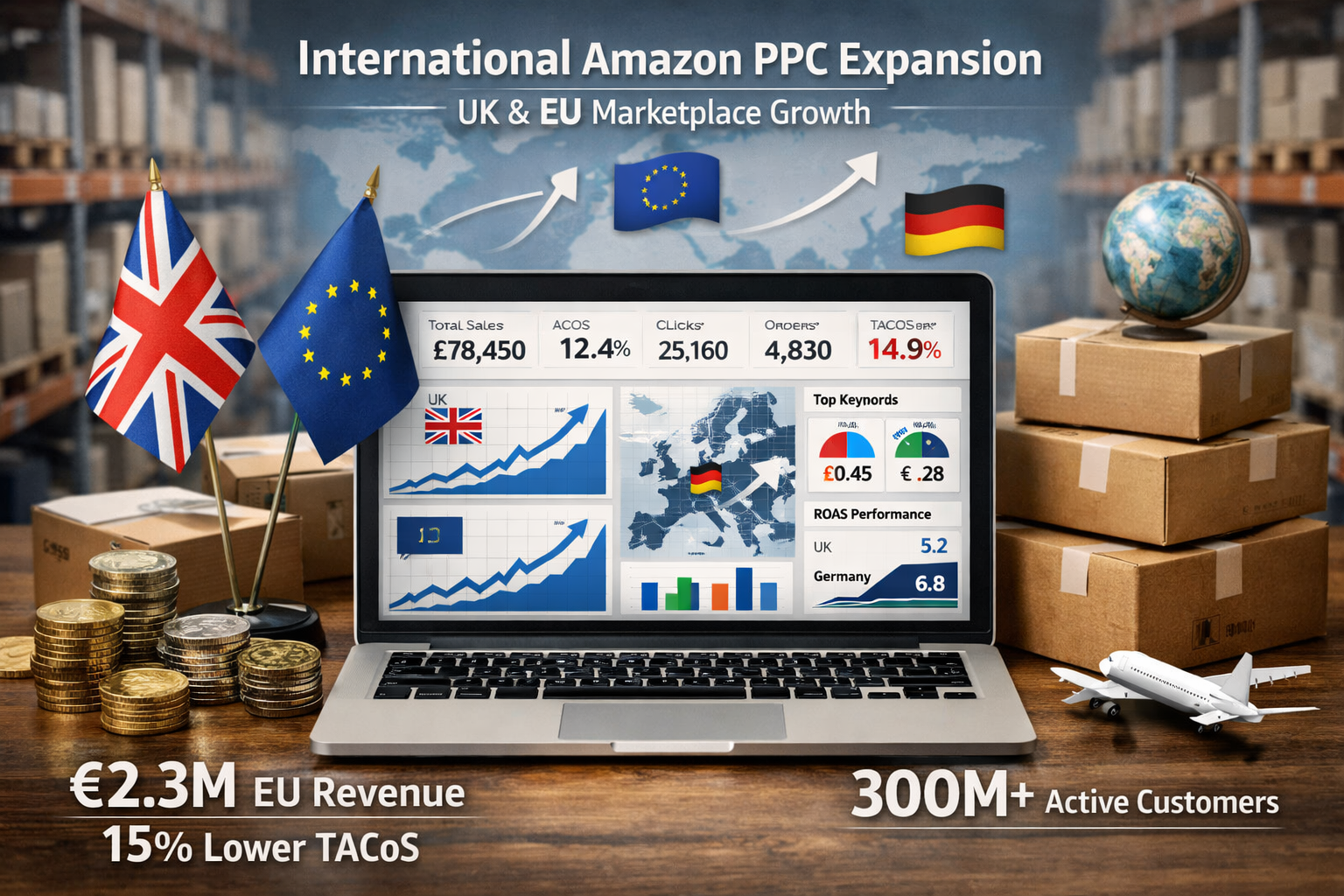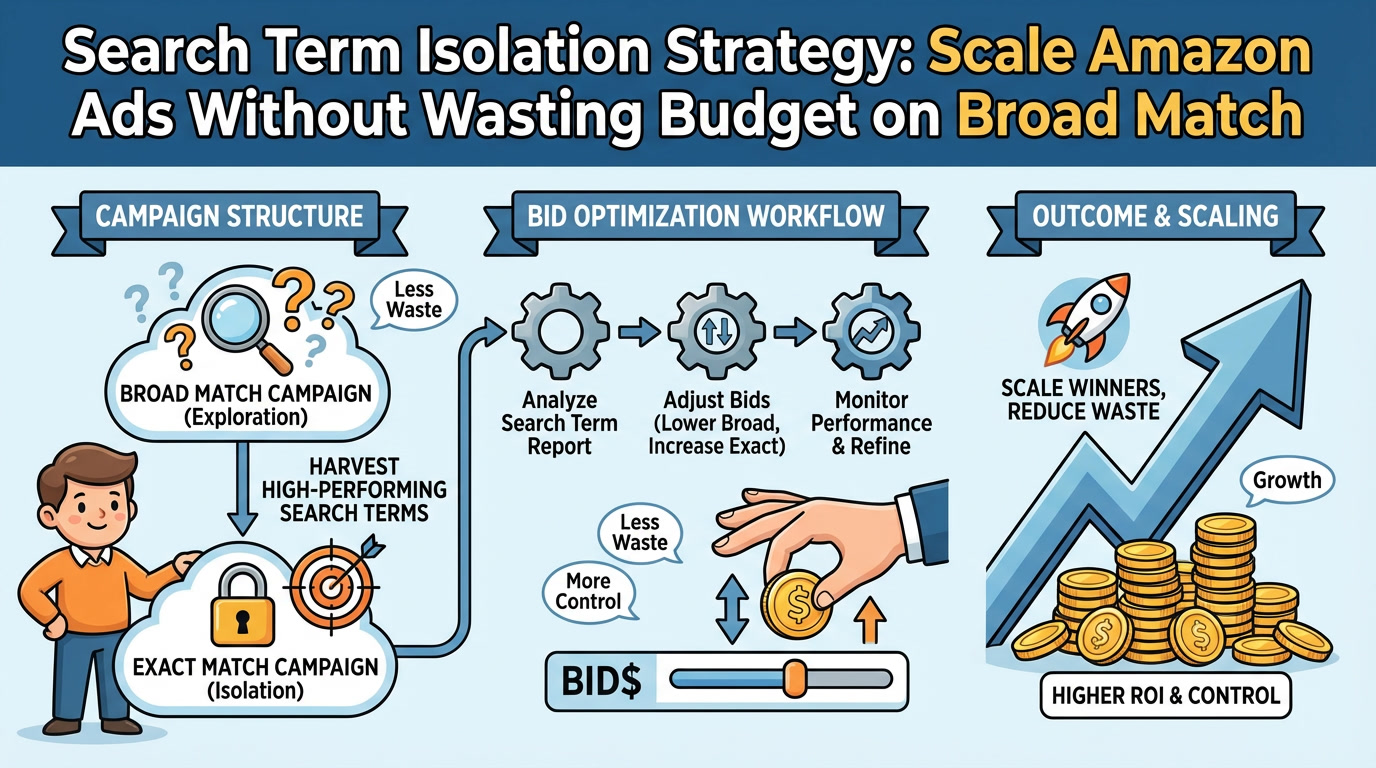The $17,000 Monthly Mistake Most Sellers Make
Recently audited an account spending $42k monthly on Amazon PPC. Eight months with their previous Amazon PPC consultant. The result? 41% pure waste.
That's over $17k every single month — vanished.
This wasn't some rookie seller, either. 7-figure brand. Experienced team. "Vetted" consultant with impressive credentials.
Still got burned.
Here's the uncomfortable truth: hiring an Amazon PPC consultant is like picking a surgeon for your business. The wrong choice doesn't just waste their fee—it hemorrhages your ad budget, kills your growth momentum, and tanks your profit margins.
Most sellers hire too late, vet too little, and pay the price in wasted ad spend.
Let's fix that.
What Actually Matters When Evaluating Consultants (Hint: It's Not Their LinkedIn Profile)
Forget the polished portfolios and fancy agency websites.
I've personally reviewed consultants with gorgeous branding who couldn't differentiate between TACoS (Total Advertising Cost of Sale) and ACoS (Advertising Cost of Sale) to save their career.
Here's what actually separates the experts from the imposters:
Track Record at Your Revenue Level
This is non-negotiable.
If you're generating $100k+ monthly and hire someone whose biggest client does $20k, you're asking for trouble. Different revenue tiers demand entirely different strategies, tools, and problem-solving approaches.
The challenges you face at $100k/month don't even exist at $20k.
I've managed accounts from $15k/month all the way to $300k+/month. The playbook completely changes at each tier. Keyword strategies that work at $20k kill profitability at $100k. Bid tactics that crush it at $50k leave money on the table at $200k.
Ask them directly: "What's the largest account you've personally managed, and what measurable results did you deliver?"
If they deflect, dodge, or give vague answers—walk away immediately.
Data Analysis Skills (Not Just Reporting)
Any consultant can generate a pretty report. Pull numbers from Seller Central. Color-code some charts.
That's not analysis. That's data regurgitation.
Real analysis means identifying why metrics changed, what specific actions caused the shifts, and exactly how to replicate successes or prevent failures.
Here's a real example: I took over an account where the previous consultant sent beautiful monthly reports. Every metric tracked. Graphs everywhere. Zero actionable insights.
We reduced their ACoS from 38% to 22% in about six weeks by actually analyzing the data instead of just displaying it.
What changed? We found their auto campaigns were bleeding spend on irrelevant long-tail keywords. Their manual campaigns had bid caps set way too low for top-converting terms. And they were running Sponsored Display ads during time windows with 3% conversion rates instead of their 14% peak windows.
The previous consultant tracked all this data. Never acted on it.
Profit-First Approach Over Vanity Metrics
Most consultants optimize for the wrong things.
Higher sales! Better impression share! Improved CTR!
Great—but are you profitable?
I've reviewed hundreds of accounts. Industry data shows average ACoS around 25-30%. That's fine—if your margins support it. In my client base, we consistently run 15-22% ACoS because we optimize for profit, not rankings.
But here's what matters more: your actual profit margins.
The right consultant asks about your margins before touching a single campaign.
They understand that a 60% ACoS might work for a high-margin product launch, but it's catastrophic for an established product with 30% margins.
I've had clients with 50% margins where we intentionally ran 35% ACoS to grab market share during a competitor stockout. Made total sense. Other clients with 25% margins where anything above 18% ACoS puts them underwater.
One size does not fit all.
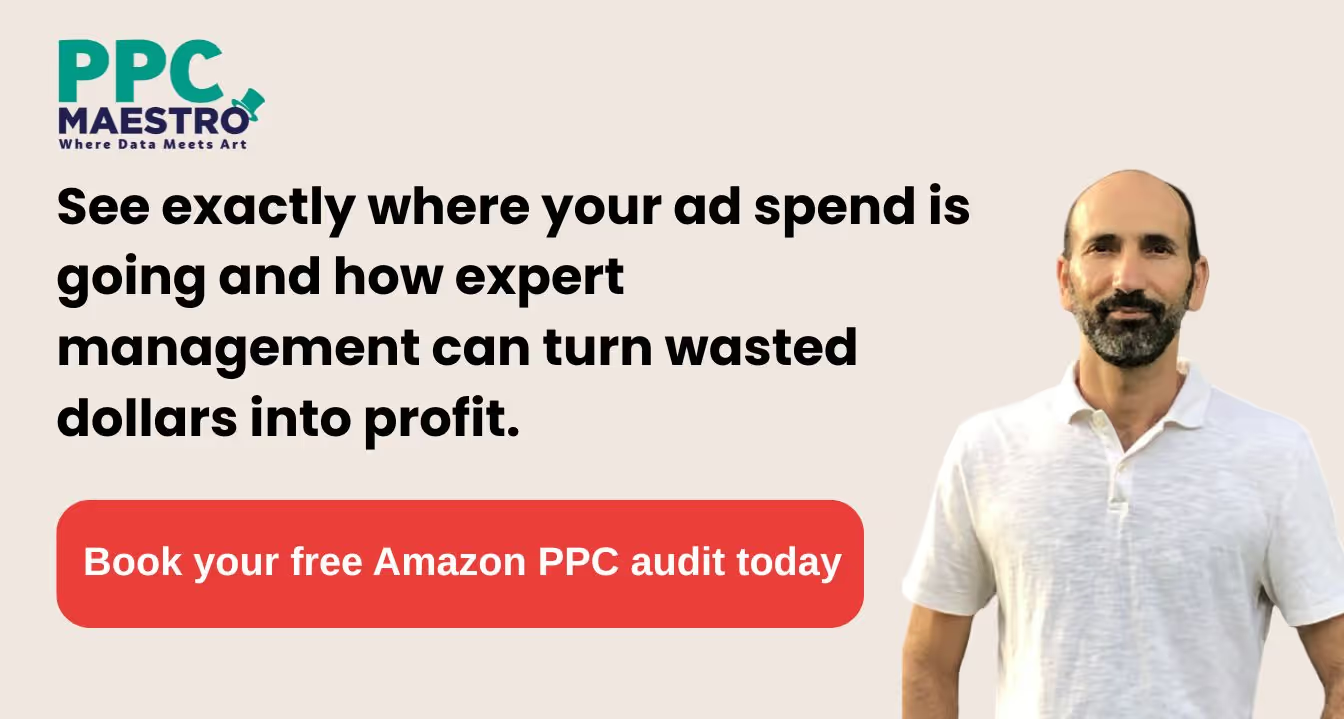
Red Flags That Scream "Do Not Hire"
I've seen enough train wrecks to spot them early now.
They Promise Specific Results Before Seeing Your Account
"I guarantee I'll slash your ACoS by 50%!"
Stop right there.
Anyone making guarantees without auditing your account first is either lying or incompetent. Possibly both.
Every account is unique. Different margins, different competition, different product quality, different conversion rates.
I've audited accounts where 50% ACoS reduction was easy—they had obvious wasted spend everywhere. Others where 10% improvement required three months of testing because the previous manager actually knew what they were doing.
A legitimate consultant says: "Let me audit your account first, then I'll tell you what's realistically achievable."
They Don't Ask About Business Goals
If they dive straight into campaign structure before understanding your exit plans, profit targets, or growth strategy—that's a problem.
Amazon PPC isn't separate from your business strategy. It IS your business strategy.
Example: Had a client planning to sell their brand within 18 months. That completely changed our PPC approach—we optimized for maximum profitability over market share expansion. Cut their ad spend by 30%, increased profit margins by 40%, and made their financials way more attractive to acquirers.
Another client wanted aggressive expansion into three new product lines. We ramped spend by 200%, ran higher ACoS on new launches, and grabbed category rankings before competitors noticed.
Same PPC platform. Completely opposite strategies.
A consultant who doesn't ask these questions is just an order-taker.
They Can't Explain Their Process Simply
"We utilize a proprietary algorithmic bidding methodology that leverages machine learning to optimize ad placement through dynamic bid adjustment protocols..."
Translation: They either don't understand their own process or they're hiding a basic approach behind fancy language.
I can explain my entire process in two minutes:
Audit search terms to find waste
Build proper campaign structure separating research from scaling
Optimize bids based on conversion data by time/placement
Add negatives religiously
Test, measure, repeat
It's not complicated. It's just disciplined.
If they can't explain it simply, they don't understand it well enough.
The Real Cost of Hiring a Consultant (It's Not What You Think)

Let's talk money.
Based on what I've seen in the market and what we charge, most Amazon PPC consultants run $500 to $5,000+ monthly. The range depends on your ad spend and complexity.
But the management fee? That's the smallest cost.
The Hidden Costs Nobody Mentions
Learning Curve Expense
Every consultant needs 30-60 days minimum to understand your account thoroughly. During that period, they're making educated guesses—sometimes expensive ones.
When I take over an account, I tell clients upfront: Month one is learning. Month two is optimization. Month three is where we start seeing serious improvement.
Anyone who tells you different is overselling.
Opportunity Cost
A mediocre consultant doesn't just waste their monthly fee. They waste your ad spend, your time, and your growth potential.
Real math on a $50k/month ad budget:
Mediocre consultant at 35% ACoS: $17,500 in ad costs
Expert consultant at 20% ACoS: $10,000 in ad costs
That $2,000/month consultant who charges less? They just cost you $7,500 monthly in excess ad spend.
After paying a $4,000 expert consultant, you're still up $3,500 every month. While growing faster and building better organic rank.
I've seen this exact scenario play out dozens of times in my audits.
Pricing Models Explained
Here's what each structure actually means:
Flat Fee ($500-$5,000/month)
Predictable. Simple. Best for stable ad budgets. Watch out for consultants who won't scale effort with your growth.
We use flat fees for most clients because it aligns our incentives with their profitability, not just ad spend.
Percentage of Spend (10-20%)
Aligns incentives—they earn more as your budget grows. But make sure they're growing your budget because it's profitable, not just to increase their fee.
I've audited accounts where consultants on percentage fees recommended raising budgets on campaigns losing money. Shocking, right?
Performance-Based
Sounds ideal. Rarely is. Make absolutely sure you agree on what "performance" means. Some consultants game these arrangements by focusing only on easy wins and ignoring long-term strategy.
Hourly ($50-$200/hour)
Flexible for occasional help. Terrible for ongoing management—incentivizes slow work.
Consultant vs Agency vs DIY: The Decision Framework You Actually Need
Here's the truth most won't tell you.
Go DIY If:
Spending under $10k/month on ads
You have 20+ hours weekly for PPC management
You genuinely enjoy data analysis and continuous testing
You're willing to invest in training and tools
Hire a Consultant If:
Spending $10k-$50k/month on ads
You want direct, personalized attention
You need strategic guidance paired with hands-on execution
You value one-on-one relationships
Choose an Agency If:
Spending $50k+/month on ads
You need a complete team (strategist, analyst, implementer)
You want faster turnaround and backup coverage
You're scaling rapidly and need systems
Personal take: I'm biased toward agencies for 7-figure brands because individual consultants hit capacity. One person can only manage so many accounts effectively before quality suffers.
I personally cap at 12 clients maximum. Beyond that, quality drops. I've seen consultants juggling 30+ accounts—every single one underperforms.
But here's the catch—a skilled consultant beats a mediocre agency every single time.
The 5-Question Vetting Framework That Reveals Everything
Skip the generic interview script.
Ask these instead:
Question 1: "Walk me through exactly how you'd audit my account."
Listen carefully for:
Specific metrics they analyze first
Red flags they actively hunt for
How they prioritize issues
Their systematic approach
Bad answer: "I'd review your ACoS and look at campaign structure."
Good answer: "I'd start with search term reports to identify wasted spend patterns, then analyze bid strategies against actual conversion data segmented by time and placement, then evaluate keyword match type performance, then check your negative keyword coverage, then review campaign structure against your business goals..."
When I audit accounts, I use my Wasted Ad Spend Calculator framework. I can usually spot $5k-$20k in monthly waste within the first hour just by looking at search terms and placement performance.
Question 2: "Tell me about your biggest account rescue."
Anyone can grow a healthy account. Can they fix a broken one?
If they can't give you a specific example with actual numbers, they haven't done it.
My favorite: Took over a supplement brand spending $86k monthly with 47% ACoS. Previous agency had them running hundreds of auto campaigns with zero structure. After three months, we cut spend to $64k and got them to 23% ACoS. They're now at $120k monthly spend and 19% ACoS.
The owner literally called it "finding $30k per month I didn't know I had."
Question 3: "How do you handle seasonal fluctuations in my category?"
This reveals business cycle understanding.
Bad answer: "We adjust bids during peak season."
Good answer: "We build scenario-based budget models, front-load spend during shoulder seasons to build organic rank pre-peak, adjust campaign structures based on historical conversion patterns, shift budget from research to scaling campaigns during high-convert periods, and plan inventory coverage to support increased impression share..."
I have clients in toys (massive Q4), supplements (January spike), and outdoor gear (spring/summer). Each requires completely different seasonal strategies.
Question 4: "What tools do you use beyond Amazon's native platform?"
If they say "just Amazon's dashboard," they're behind.
I use Helium 10 for keyword research, Seller Central native tools for campaign management, custom Excel models for bid optimization, and our proprietary Profit Feedback Loop system to track true profitability across organic and paid.
Top consultants leverage multiple tools for deeper insights. But tools are just tools—they don't replace strategic thinking.
Question 5: "How will we communicate, and what will I actually see?"
Weekly updates? Monthly reports? Ad-hoc alerts?
Match this to your needs. Some sellers want weekly calls and constant updates. Others prefer monthly summaries with alerts only when action is needed.
I do monthly deep-dive reports with weekly Slack updates and immediate alerts if anything breaks or spikes. But I customize based on client preference.
No right answer—just make sure expectations align.
Setting Expectations Without the Awkward Dance
Before hiring anyone, get brutally clear on three things:
Define Success in Specific Terms
Is success lower ACoS? Higher total sales? Improved profitability? Better organic ranking?
These aren't always aligned.
I've had situations where raising ACoS was the right strategic move because it drove market share and organic rank for a client planning aggressive expansion.
Had another client where we cut their ad spend by 40% and their total revenue dropped 8%—but their profit increased by 65%. They were thrilled. Previous consultant would have called that "failure" because sales went down.
Define your North Star metric upfront. Make it measurable.
Establish Communication Rhythm
How often do you want updates? What detail level? Which format works best?
I've watched strong consultant relationships implode over communication mismatches—client wanted weekly calls, consultant preferred monthly reports.
Be Honest About Budget Reality
If you're spending $15k monthly on ads and need to stay there, say it.
If you're ready to scale to $50k, say that instead.
The strategy changes completely based on growth plans.
Maintenance mode at $15k means we're optimizing for efficiency and profit. Scaling to $50k means we're testing aggressively, expanding into new keywords, and tolerating higher short-term ACoS for long-term ranking gains.
The One Question That Reveals Everything
After all your vetting, ask this:
"If you were in my exact position, would you hire yourself—or look elsewhere?"
Then stop talking. Just listen.
A truly confident consultant will tell you yes and explain precisely why.
A consultant who's wrong for your account will sometimes admit it (the honest ones, anyway).
A desperate consultant will oversell themselves—you'll feel it.
I've told prospects "you'd be better with an agency" or "honestly, you should DIY for another six months" when it was true. Lost the sale, but it was the right answer.
Trust that gut reaction.
Your Next Move
Hiring an Amazon PPC consultant shouldn't feel like gambling with your business.
With the right vetting framework, you'll know exactly what you're getting.
But here's what most sellers miss: they hire too late. They wait until their account is hemorrhaging cash before bringing in expertise.
By then, you've already burned thousands in wasted spend and missed growth opportunities.
Want to know where you stand right now?
Use our Wasted Ad Spend Calculator to see exactly how much money is leaking from your campaigns this month. It's the same framework I use in my audits—it'll show you waste in about 5 minutes.
Or book a Free Profit Audit—I'll personally review your account and show you what's actually broken and the specific steps to fix it.
No sales pitch. No pressure. Just the unfiltered truth about your ad spend.
Because whether you hire me, hire someone else, or keep managing PPC yourself, you deserve to know what's really happening with your money.
Frequently Asked Questions
What should I expect to pay an Amazon PPC consultant in 2025?
Most consultants charge between $500 to $5,000+ monthly depending on your ad spend and account complexity. But here's what matters more than the fee: total profitability impact. I've taken over accounts paying consultants $1,500/month and found $8,000 in monthly wasted spend. The "cheap" consultant was actually the most expensive mistake they made. Focus on ROI, not just the management cost. A consultant charging $3,000 who cuts your waste by $10,000 monthly delivers far more value than a $1,500 consultant who saves you nothing.
How long does it take for a new consultant to show measurable results?
Expect 30-60 days minimum for meaningful improvements. The first month involves learning your account, identifying critical issues, and implementing foundational fixes. Month two is where you typically see real metric movement. I tell every new client: Month one is learning, month two is optimization, month three is where we hit stride. Anyone promising immediate overnight results is either taking dangerous risks with your budget or lying about realistic timelines. I've cut ACoS significantly in week one before—but that's when the previous management was terrible and obvious waste was everywhere. Sustainable improvements require data collection, testing, and refinement.
Should I hire a consultant or an agency for my Amazon PPC?
It depends on your ad spend and needs. Consultants typically work best for brands spending $10,000-$50,000 monthly who want personalized attention and direct strategic guidance. Agencies suit brands spending $50,000+ monthly who need full teams, faster turnaround, and 24/7 coverage. I personally recommend agencies for most 7-figure brands planning aggressive scaling because individual consultants hit capacity—I cap at 12 clients maximum to maintain quality. But a skilled consultant beats a mediocre agency every time. I've audited plenty of agency-managed accounts that were disasters despite big teams and fancy dashboards.
What qualifications should I look for in an Amazon PPC consultant?
Ignore certifications—focus on verified results. Look for proven track records with accounts at your revenue level, strong data analysis capabilities beyond basic reporting, and profit-first mindset over vanity metrics. Ask for documented case studies showing specific ACoS reductions and revenue improvements. When I show prospects our case studies, I include before/after screenshots, actual dollar amounts, and timelines. Experience with your product category and revenue tier matters more than Amazon Advertising certifications. I've seen certified consultants who couldn't manage their way out of a paper bag, and uncertified experts who crush it.
How do I know if my current Amazon PPC consultant is doing a good job?
Compare your ACoS against what's actually profitable for your margins. Industry data shows platform average around 25-30%, but that's meaningless if your margins don't support it. In my client base, we consistently run 15-22% ACoS by focusing on profit, not industry averages. But context matters: evaluate ACoS relative to your profit margins and business goals. Review whether they're actually analyzing data (explaining why metrics changed and how to improve) versus just reporting numbers. Check if they're asking about your business strategy, not just managing campaigns tactically. Request your search term reports and look for obvious wasted spend on irrelevant keywords. Run it through our Wasted Ad Spend Calculator—if it shows significant waste, your consultant isn't doing their job.
What's the difference between an Amazon PPC consultant and a full-service agency?
Consultants are typically individuals or small teams offering personalized attention and strategic guidance, while agencies provide comprehensive teams with multiple specialists, faster execution, and broader service capabilities. I work solo with a VA, so my clients get me directly—no account manager buffer. Agencies have dedicated strategists, analysts, and implementers working simultaneously. Consultants give you direct access and customized strategies but have capacity limitations—I max out at 12 clients. Agencies scale better for brands spending $50k+ monthly. For most 7-figure sellers, agencies provide infrastructure advantages, though exceptional consultants can outperform average agencies.
Can I switch consultants if the current one isn't working out?
Yes, but build exit terms into your contract upfront. Most consultants work on 30-60 day notice periods. Ask about their transition and documentation processes before signing—professional consultants maintain detailed records and facilitate smooth handoffs. I document everything in shared Google Sheets my clients can access anytime. They own their data, their strategy, everything. If a consultant resists reasonable exit clauses or won't clearly document their work, that's a major red flag. Your account should have transparent records of all campaigns, keywords, bid strategies, and testing history. Avoid consultants who make your account proprietary or difficult to transition.
Should I hire an Amazon PPC consultant if I'm just starting out?
Probably not yet. For new sellers spending under $10,000 monthly on ads, DIY management often makes more sense while you learn the fundamentals. Invest that consultant budget in education and tools to build your own PPC knowledge base. Once you're spending $10,000+ monthly and growth is limited by time or expertise rather than budget, then bring in professional help. Exception: if you're launching with serious capital and plan to scale aggressively from day one, hire expertise early to avoid expensive beginner mistakes. I've had startup clients spend $15k in their first month learning what not to do—that education would have cost $3k if they'd hired help upfront.
No external works cited section needed - article relies on author's direct experience and expertise as primary authority
